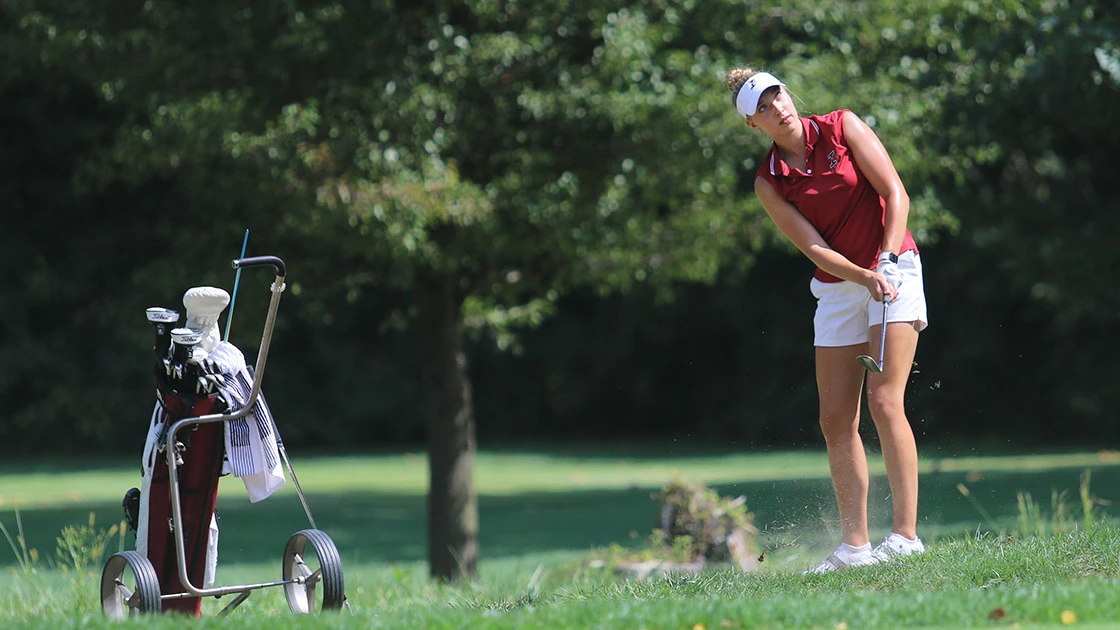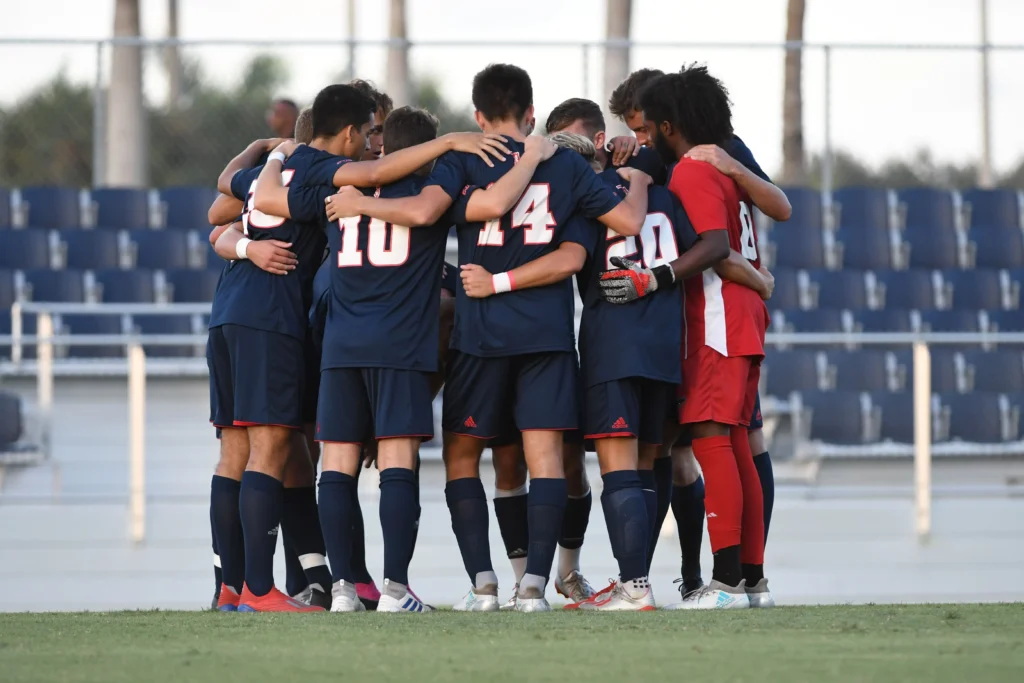
US University Checklist for International Students
The Ultimate Prep and Packing List for Student-Athletes Heading to the US
Preparing to study in the USA as an international student is an exciting experience. While the thrill of starting a new chapter is undeniable, it’s natural to feel a bit stressed about getting everything in order before departure. Packing clothes and sports gear is just one part of the preparation—having the correct documents ready is even more important.
To make the process easier, we’ve created a U.S. college checklist for international students to help you get ready for your big adventure!
Documents Needed to Travel to the US
As an international student preparing to study in the USA, organising your paperwork is a crucial step. While you’re likely aware of the need for a valid passport and student visa, there are several other documents you’ll need for both entry into the U.S. and your time at university.
Here’s what you’ll need:
- Passport: Ensure it is valid for the entire duration of your studies and at least six months beyond your intended stay.
- Student Visa: Verify that your visa is up-to-date and aligns with the terms of your academic programme.
- I-20 or DS-2019 Form: Issued by your university, this document is essential for U.S. entry and maintaining your student status.
- Acceptance Letter: Keep a copy handy for immigration checks or administrative needs at your university.
- Health Insurance Information: American universities require international students to have health insurance. Carry a copy of your insurance card and policy details for easy access.
- Academic Transcripts: Bring official copies of your academic records, which may be needed for administrative tasks or transfer applications. Remember that an official transcript must be in a sealed envelope provided by the school.
- Financial Documents: Have proof of funds, such as bank statements, ready to show at the border to confirm your ability to support yourself during your studies.
Understanding all the requirements and steps for obtaining these documents can feel overwhelming if you’re unfamiliar with the application process and deadlines. However, as a Keystone Sports client, you’ll receive full support to ensure everything is handled smoothly. We’ll guide you through the process, help organise the necessary documents for entry into the USA, and ensure you have them ready on time.
Once your paperwork is in order, staying organised is key. By keeping everything in clearly labelled folders—in both digital and physical formats—you’ll have quick and easy access whenever needed. Being well-prepared and maintaining organisation saves time and reduces stress, especially during your first days in the U.S. when various registrations and appointments may require these documents.
Financial Essentials for International Students
As an international student, managing your finances effectively while abroad will save you time and make daily life much easier. For example, setting up your non-American bank card for international usage while still in your home country is often simpler than dealing with it after arriving in the USA. Taking care of this in advance helps ensure a smoother transition and prevents potential complications. Planning ahead truly makes all the difference!
Remember:
- Credit/Debit Card: Confirm that it works internationally.
- Cash: Bring a small amount of US dollars for immediate needs.
- Bank Account Information: Check with your university on how to open a local account.
Health and Vaccination Requirements for University Students
Preparing for university in the U.S. includes reviewing your vaccination records. Many universities require proof of immunisations for diseases such as measles, mumps, and rubella (MMR), among others. Contact your university’s health services to confirm the specific vaccination requirements and gather any necessary documentation. If you need additional vaccinations, schedule them well in advance before heading to the USA, as some require multiple doses for full protection.
Besides the vaccinations, there are other health-related steps to consider:
- Medical Records and Prescriptions: Bring any health documents, including prescriptions or records of ongoing treatments, to maintain continuity of care.
- Nutrition Supplements: If you use specific supplements, check their legal status in America. Some may be restricted or regulated, so it’s important to verify this beforehand.
Clothes for All Seasons
The USA is a large country, spanning multiple time zones and climates. Is your university located in the snowy Rocky Mountains or the sunny state of Florida? Before packing, research the typical weather in your university’s region to ensure you’re prepared for the local climate.
To help you organise and pack your clothes, you can divide them into the following categories:
- Everyday Wear: Casual outfits for classes and campus life.
- Formal Attire: Bring at least one professional outfit for presentations, events, or interviews.
- Seasonal Clothing:
- For colder regions: Pack warm coats, thermal wear, gloves, and warm, waterproof shoes.
- For warmer areas: Bring light, breathable fabrics and sun protection for the hotter months.
Gear and Sportswear for Student-Athletes
As a student-athlete, your daily routine will include practices, workout sessions, team meetings, and possibly rehabilitation. Packing the right athletic gear is vital to stay on track with your schedule. Many practices take place early in the morning when temperatures are cooler, so pack layers such as lightweight jackets or sweatshirts to stay comfortable.
Most universities provide sportswear for their student-athletes, including school-branded practice uniforms and match gear. These are usually distributed after you arrive on campus. To stay prepared in the meantime, pack a few sets of your own athletic clothing for training and conditioning sessions.
Don’t forget to pack:
- Multiple sets of workout clothes for training and conditioning.
- Sport-specific gear (e.g., cleats, knee pads, or swimwear).
- Comfortable athletic shoes suitable for practice and recovery sessions.
- Recovery tools and other equipment recommended by your coach to support your training and recovery routines.

Electronics and Tech Must-Haves
Your devices are key to staying connected, studying, and keeping up with entertainment:
- Laptop and Charger: Essential for assignments, research, and coursework. When off-duty, it’ll also be your go-to for streaming or catching up on your favourite shows.
- Plug Adapter and Voltage Converter: American outlets use Type A/B plugs and 120 volts, so ensure you pack the right adapter.
- Headphones or Earbuds: Perfect for focusing during study sessions, relaxing, or travelling.
- Power Bank: A must-have for charging your devices on the go, especially when travelling or at matches and tournaments where power outlets may be scarce.
Student Supplies
When packing light, focus on the supplies you’ll need right away and those specific to your field of study. While most items can be purchased in the U.S., having the essentials on hand ensures you’re ready from day one.
Here’s a list of key student supplies:
- Notebooks and Pens: Bring enough for your first few weeks. Even if you prefer taking notes on your laptop, pack a few pens and a notebook for when you need to jot things down quickly.
- Calculator: If you’re taking maths or science courses, an advanced calculator is essential. Check if your programme requires a specific model.
- Backpack or Bag: Bring one that’s comfortable and spacious enough to carry books, your laptop, and all the essentials you’ll need on campus every day.
Dorm Room Essentials
As a first-year student, you’ll likely be staying in the dorms on campus. This will be your new home, so try to make it as comfortable as possible with personal touches such as family photos or small decorations.
While many items can be purchased locally to save space in your bag, here’s a list of essentials you’ll need:
- Bedding: If you don’t have specific preferences, there’s no need to bring sheets, duvets, or pillowcases with you. If you plan to buy bedding once you arrive, check your university’s bed and pillow size beforehand.
- Towels and Toiletries: You don’t need to pack large quantities of towels or toiletries unless you prefer specific brands that might be hard to find in the U.S. Most items can be easily purchased after arrival.
- Laundry Supplies: Detergent pods and laundry bags are available at nearby stores, so there’s no need to bring them from home.
Snacks and Personal Items to Cope When You Feel Homesick
Studying in the U.S. is an exciting new chapter, but it’s natural to feel homesick occasionally. Personalising your room with photos or keepsakes helps make the space feel more like home, which can ease those moments. Another way to manage homesickness is by packing snacks or spices that might be hard to find abroad. These familiar tastes can bring comfort and remind you of home when you need it most.
Last Reminders for a Smooth Start to University Life in the U.S.
Packing for university as an international student requires careful planning, but using a checklist can make the process much easier.
Here’s a quick overview of the key points to remember:
- Start early to prepare for your move abroad to avoid last-minute stress.
- Prioritise your paperwork to prevent any issues when entering the country.
- Be ready to answer questions about your study plans and have all documents ready to show immigration officers at border control.
- Check your university’s specific requirements, such as health insurance, vaccination records, and health-related documents.
- Verify the legal status of any medications or supplements you’re taking.
- Arrange transportation from the airport to the university in advance to avoid last-minute stress after a long flight.
- Research affordable U.S. phone plans beforehand and bring an unlocked phone to switch to a local SIM card easily.
- Ensure your bank cards work internationally to avoid payment issues.
- Pack for the local climate and bring the essentials for sports practice.
- Don’t worry if you forget something—most items can be purchased after you arrive.
Lastly, studying in the USA is an exciting and fun experience, but it’s completely normal to feel homesick at times. Bringing along personal items that remind you of home can provide comfort during those moments and help you feel more connected.

Study in the U.S. on a Sports Scholarship with Keystone Sports
From imagining your future at an American university to preparing your bags, the process involves many steps over several months. With Keystone Sports by your side, you’ll receive expert support at every stage.
We specialise in connecting international students with universities in the U.S. and Canada. Our team evaluates your sports scholarship potential at no cost, promotes you to university coaches, and helps you secure a scholarship to cover the costs of both your education and athletic training. We also handle all the paperwork, so you can focus on what matters most: your time as a student-athlete in America.
Contact us today to explore how we can help!
Share this article:

About the author
Paulina Romo
Paulina Romo, SEO Manager at Keystone Sports, holds a Master’s degree in Business Administration and has a background in equestrian sports, specializing in dressage. Shaped by international experience gained from work and studies in Sweden, South Korea, Germany, and Spain, Paulina brings a diverse blend of marketing skills and perspectives to her role.
More related articles

Advantages of Choosing a Junior College for International Athletes
Junior colleges provide an excellent alternative to the conventional university, especially for international students. What are their benefits? Discover the unique opportunities of the JUCO system.

How to Choose the Right University and Program
Choosing the right university and sports program can feel a bit overwhelming. Get the best advice from Keystone Sports in our article!

How to Get a Fully Funded Sports Scholarship in the USA
A fully funded sport scholarship is your opportunity to combine sports with a university degree – without worrying about financial aid. Here is everything you need to know about “full ride scholarships” and how to get one!

